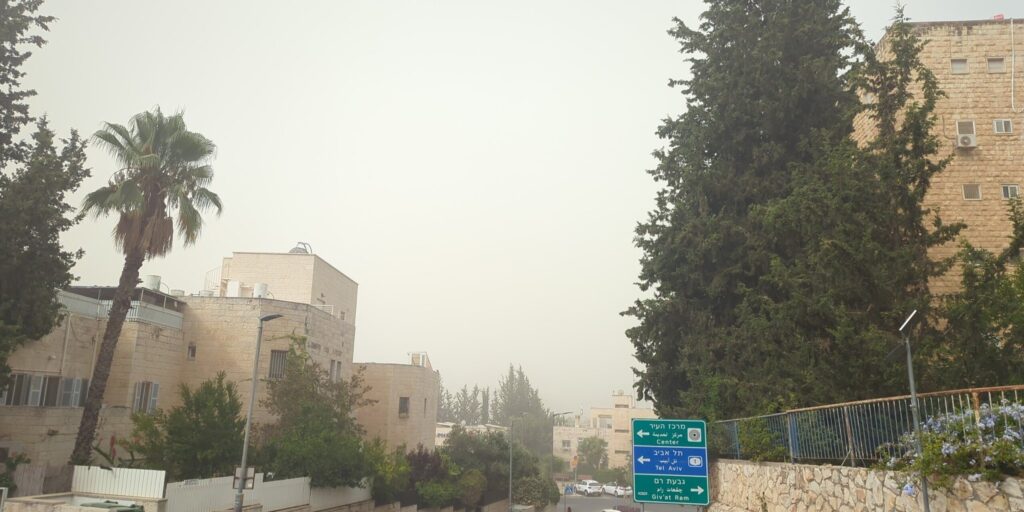The heatwave that engulfed Israel over the weekend intensified this week, with meteorologists saying that the temperatures this week may be the highest in over 80 years.
The week’s forecast in Jerusalem is 101°F (38.3°C) on Monday, 102°F (38.9°C) on Tuesday, 104°F (40°C) on Wednesday, and 103°F (39.4°C) on Thursday. Extreme heat stress is expected throughout the country, with the most extreme heat loads expected in the mountains and eastern areas.
The forecast for the valleys surrounding the Kinneret and the Jordan Valley are expected to be the highest since 1942, with temperatures near the Kinneret expected to reach 118–120°F (47.8–48.9°C) and the temperatures in the Jordan Valley expected to reach 122–124°F (50–51.1°C).
In addition to the heavy heat, Israel’s Health and Environmental Protection Ministries on Monday issued a warning about extremely high air pollution levels in Jerusalem, Yehudah and Shomron, and the Jordan Valley.
According to the ministries, the cause of the hazardous pollution levels is increased cloud cover over Jordan, which created powerful winds that blew the dust from the east into Israel.
The video below was taken in Ma’aleh Adumim, near Jerusalem:
The Health Ministry recommends that vulnerable populations, including patients with heart, blood vessel, or respiratory diseases, the elderly, pregnant women, and children, avoid strenuous physical activity outdoors.
The general population is also advised to minimize strenuous activity outdoors until air quality improves.
(YWN Israel Desk—Jerusalem)












2 Responses
The Health Ministry should also be advising the Yeshivish public to be wearing light color clothing rather than black & dark clothing which absorb heat, & to be wearing straw hats rather than felt hats.
147: While it might seem counterintuitive, Bedouins wearing black in hot desert climates is a practical choice. Loose, dark clothing, particularly black robes, can actually help them stay cooler by promoting air circulation and facilitating evaporative cooling through sweat. The black fabric absorbs heat, but the loose fit allows for airflow that carries the heat away from the body, preventing it from reaching the skin.